The Sunday Paper #257
April 28, 2019
You know how sometimes you know what a word means, but you wouldn’t really know how to describe it if someone asked you? I looked up gossamer, and even lovelier images than I already had in my head came into view: a fine, filmy substance consisting of cobwebs spun by small spiders, seen especially in autumn. A second definition described it as: used to refer to something very light, thin, and insubstantial or delicate. These both describe Gangolf Ulbricht’s Berlin Tissue (gossamer) paper, which is touted as the thinnest, non-visible restoration handmade tissue in the world.
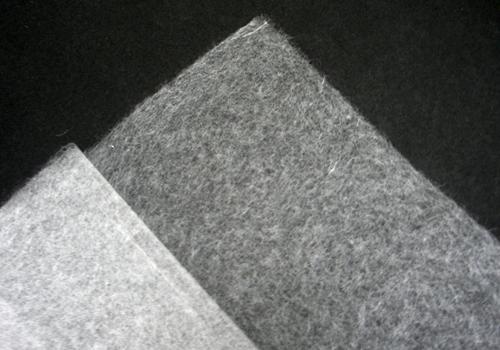
I had the pleasure of interviewing Ulbricht for an upcoming issue of Hand Papermaking Magazine. His story is fascinating, and his Berlin-Tissue (gossamer) paper is made out of the best quality imported Japanese mitsumata and kozo (mulberry) bast fibers. The bast is first cooked in an alkaline solution, soaked, cleaned and beaten by hand, and then formed into sheets of up to 1.5 g/m². It is available in the states from Hiromi Paper.
———————————————————————————————–––––––
In the Studio
I’m busy designing the projects for the 2020 Twelve Months of Paper Project book. Here’s a short video in which I describe it and show you the featured guest projects.
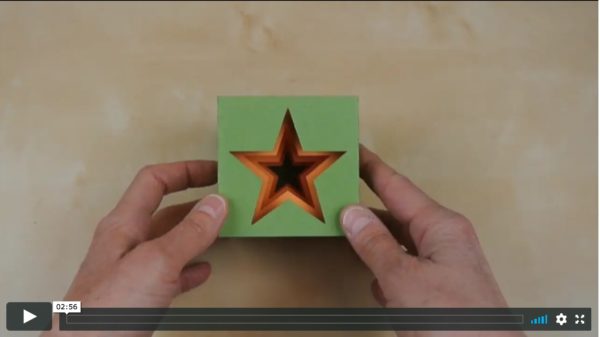
———————————————————————————————–––––––
Papery Tidbits:
- Have you listened to my the latest episode of Paper Talk, featuring Lynn Sures?
- Paper Illuminated is now available as a self study online course. Read all about it!
- I’m currently seeking a sponsor for each month of the Twelve Months of Paper. Contact me if you are interested in promoting your company in the book, on this blog and on Paper Talk.
———————————————————————————————–––––––
Oooh, paper and string: two of my favorite things! “Dendro Beton #11” is from a
recent series of works by Orna Feinstein that was recently on view in Houston at the Anya Tish Gallery. She has spun spun tightly-wound slivers of paper to create ‘growth rings’ within a concrete base, and affixed thread that dangles like roots.
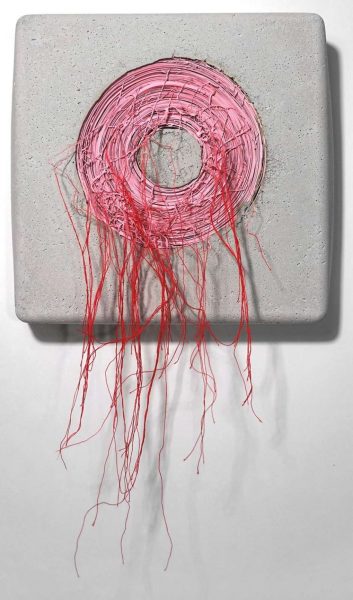
“Dendro Beton #11” is among works in Orna Feinstein’s show “The Other Side of the Forest,” Photo: Courtesy of the artist / Anya Tish Gallery
You’ve seen me write about origami multiple times, and this article in Smithsonian, about
how scientists and engineers are finding practical applications for the origami in space, medicine, robotics, and architecture, shows the many ways that folding a variety of materials are being influenced by this ancient form of paper folding. Imagine what the first folders would think!
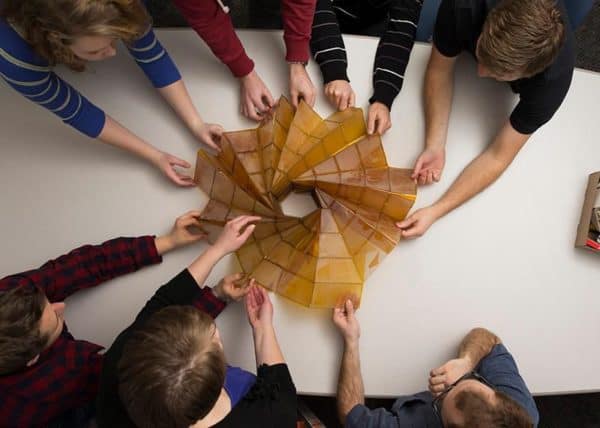
One of Brigham Young University engineering professor Larry Howell’s initial origami projects was a solar array that compacted to 9 feet during launch, but deployed to 82 feet across in space to generate power. (Larry Howell)
Check this out!
Justin Favela creates paintings with piñata paper. His exhibition,
Re/Presenting Mexico: José Maria Velasco and the Politics of Paper is at the David Smith Gallery in Denver until May 4. This exhibition showcases 14 individual piñata paintings that are all modeled from famous late-nineteenth-century Mexican nationalist paintings by José María Velasco.
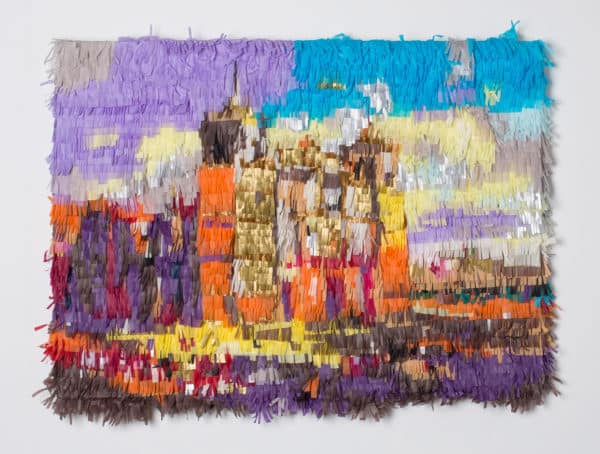
“Catedral de Oaxaca, after José María Velasco” by Justin Favela
I recently received a handful of these lovely cards from
Elod Beregszazi, who runs Popupology, a UK-based company that develops and finds applications for the genre of cutting and folding form from a single sheet of paper known as
Origamic Architecture. Templates for these + several other designs are available for a small fee on his website.
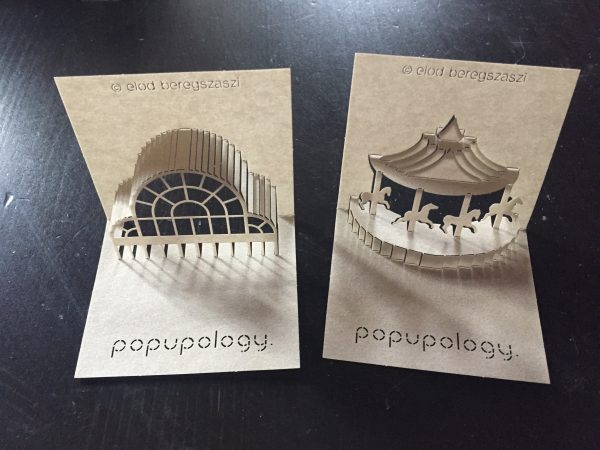
This video, called
The Future is Handmade, touched my heart!
———————————————————————————————–––––––
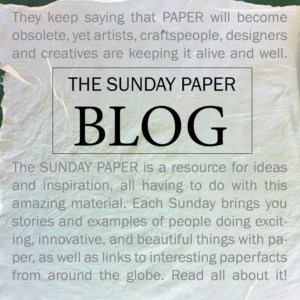
If you read this blog regularly, would you consider making a donation to support the research, writing, design and delivery of The Sunday Paper? Click on the paper button at the left to learn how. Or, perhaps you’re interested in promoting your business in The Sunday Paper.
Thanks to everyone who has already pledged your support!
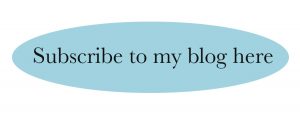
SHARE THIS blog post with your paper-loving friends!
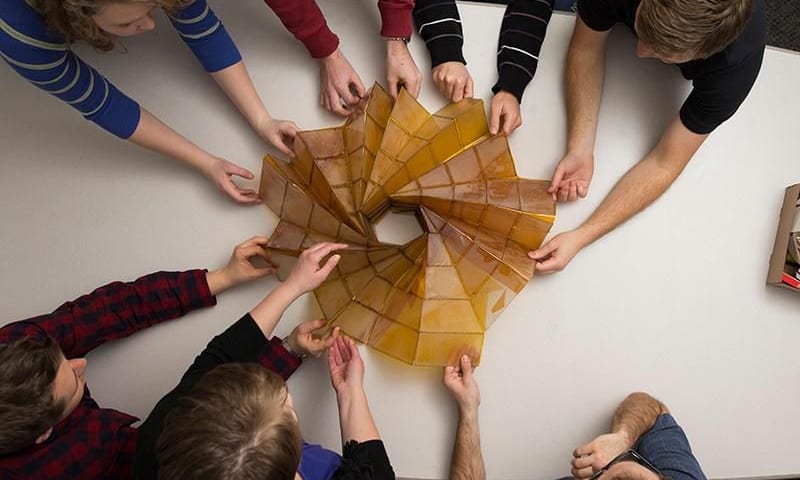







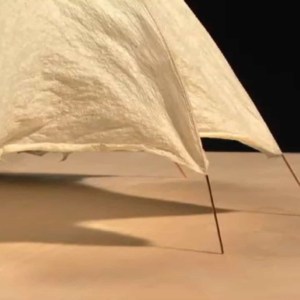
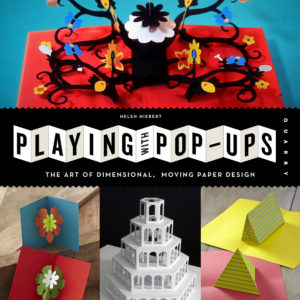

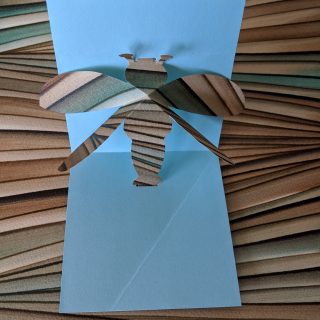


1 Comment
Helen,
Really enjoyed Justin Favela paintings with piñata paper. The video, called The Future is Handmade, was inspirational. Thanks.